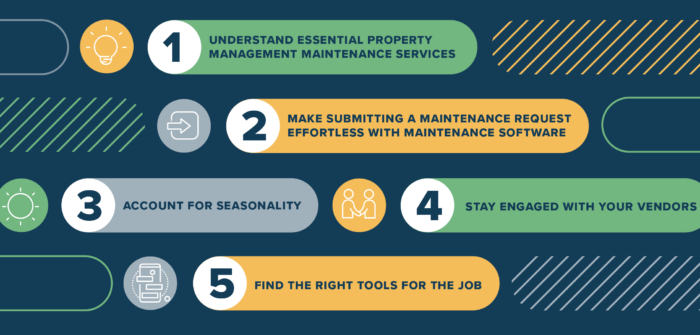Unlock the secrets to successful property management with these top 5 must-know tips for property managers. Don’t miss out!

Image courtesy of Dominika Roseclay via Pexels
Table of Contents
- Introduction to Property Management
- Keep Good Communication
- Regular Maintenance and Inspections
- Tip: Know the Laws
- Choose Tenants Wisely
- Tip 5: Use Technology to Your Advantage
- How to Handle Challenging Situations
- Continuing Your Education
- Financial Management for Properties
- Summary and Conclusion
- FAQs
Introduction to Property Management
property managers play a crucial role in overseeing rental properties and ensuring everything runs smoothly for both owners and tenants. Let’s dive into what property management is all about and why it’s essential for successful rental property operations.
What is Property Management?
Property management involves the day-to-day tasks of handling rental properties on behalf of the owners. Property managers take care of various responsibilities, such as finding tenants, collecting rent, maintaining the property, and handling repairs or issues that may arise.
Why Effective Management Matters?
Effective property management is key to maintaining a positive relationship between owners and tenants. By ensuring that properties are well-maintained, tenants are happy, and owners receive a steady income from their investments. Good management practices can lead to long-term tenant satisfaction, lower vacancy rates, and overall profitability for property owners.
Keep Good Communication
Effective communication is crucial for successful property management. As a property manager, your ability to communicate clearly with both tenants and property owners sets the foundation for a positive and productive relationship. Here are some tips on how to keep good communication in your rental management role.
With Tenants
Keeping an open line of communication with your tenants is key to a successful rental property management experience. Make sure to respond promptly to any inquiries or concerns they may have. Regularly check in with them to ensure that they are satisfied with their living conditions and address any maintenance issues promptly. Setting clear expectations from the start can help prevent misunderstandings and ensure a harmonious landlord-tenant relationship.
With Property Owners
Transparent communication with property owners is essential for maintaining trust and transparency in your role as a property manager. Keep them informed about the status of their property, any repairs or maintenance work being done, and any issues that may arise. Providing regular updates and detailed reports can help owners feel confident in your management capabilities and build a strong working relationship.
Regular Maintenance and Inspections
One essential aspect of managing rental properties is scheduling regular maintenance. This includes tasks like fixing leaky faucets, checking heating and cooling systems, and making sure common areas are well-maintained. By setting up a consistent schedule for these maintenance activities, property managers can prevent small issues from turning into costly repairs later on. This proactive approach not only ensures the safety and comfort of tenants but also helps in preserving the property’s value.

Image courtesy of www.buildium.com via Google Images
Conducting Inspections
Another crucial practice for property managers is conducting regular inspections of the rental units. Inspections allow managers to identify any maintenance issues, safety concerns, or lease violations that need to be addressed. It’s important to communicate inspection schedules clearly to tenants and to conduct these inspections in a respectful and non-intrusive manner. By staying on top of property inspections, managers can ensure that the rental units are kept in good condition and that tenants are following the lease terms.
Tip: Know the Laws
Understanding and following residential property laws is crucial for property managers to ensure they operate within legal boundaries. By knowing the laws, property managers can protect themselves, their properties, and their tenants. Here are some key aspects to consider:
Local Housing Regulations
Property managers need to stay updated with the local housing regulations in their area. These regulations can vary from city to city or state to state, so it’s essential to know the specific laws that apply to your rental properties. By being aware of these regulations, property managers can avoid potential legal issues and provide a safe and compliant living environment for tenants.
Lease Agreements
Lease agreements are legal contracts that outline the terms and conditions of the rental agreement between the landlord and tenant. Property managers need to ensure that these lease agreements are clear, comprehensive, and compliant with all relevant laws. It’s important to include crucial information such as rent amount, payment due dates, security deposit details, and maintenance responsibilities. By having legally sound lease agreements in place, property managers can protect themselves and their properties in case of any disputes or issues.
Choose Tenants Wisely
One of the most important aspects of being a property manager is selecting the right tenants for your rental units. A thorough screening process can help you find reliable tenants who will take care of your property and pay rent on time. To start, create a rental application that includes questions about the potential tenant’s employment, income, rental history, and references. Verify this information by conducting background and credit checks. These steps can give you a comprehensive view of the applicant and help you make an informed decision.

Image courtesy of therealestatetrainer.com via Google Images
Building Good Tenant Relationships
Once you’ve chosen a tenant, it’s essential to start on the right foot by building a positive relationship. Introduce yourself and provide clear expectations about rent payments, maintenance responsibilities, and any rules or policies. Establish open lines of communication so tenants feel comfortable reaching out with any concerns or questions. By fostering a good relationship from the start, you can create a harmonious living arrangement that benefits both you and your tenants.
Tip 5: Use Technology to Your Advantage
One way to stay organized and efficient as a property manager is to utilize management software. This type of software can help you keep track of important dates, deadlines, and maintenance schedules. By using management software, you can streamline your tasks and ensure that nothing falls through the cracks.
Mobile Apps
Another helpful tool for property managers is mobile apps designed specifically for managing rental properties. These apps can simplify various aspects of property management, such as communicating with tenants, tracking expenses, and scheduling maintenance. By utilizing these apps, you can easily access important information on the go and stay on top of your responsibilities.
How to Handle Challenging Situations
When managing rental properties, property managers often encounter challenging situations that require quick thinking and professional handling. Here are some tactics to navigate through difficult scenarios effectively.

Image courtesy of www.rasmal.com via Google Images
Conflict Resolution
Conflicts can arise between tenants, with property owners, or even among property staff. It’s crucial to address these issues promptly and in a fair manner. To resolve conflicts, listen carefully to all parties involved, remain calm, and find a solution that works for everyone. Maintaining open lines of communication and showing empathy can go a long way in resolving disputes amicably.
| Tip # | Tip Description |
|---|---|
| 1 | Keep detailed records of all communication with tenants |
| 2 | Regularly inspect properties to ensure they are well-maintained |
| 3 | Stay up to date on local landlord-tenant laws |
| 4 | Communicate clearly and promptly with tenants about any issues |
| 5 | Build good relationships with tenants to encourage long-term rentals |
Dealing with Late Payments
One common challenge property managers face is dealing with tenants who fail to pay rent on time. When addressing late payments, it’s important to communicate clearly with tenants about the situation. Politely remind them of their obligations and inquire about the reasons for the delay. Establish a clear late payment policy and follow through with any consequences outlined in the lease agreement if necessary. By handling late payments professionally and consistently, property managers can maintain financial stability and tenant accountability.
Continuing Your Education
In the world of property management, learning should never stop! To be the best property manager you can be, it’s vital to keep educating yourself and staying up-to-date on industry trends. Here are a few ways you can continue your education to achieve successful property management:
Professional Development
One of the best ways to enhance your property management skills is through professional development. This could entail attending workshops, seminars, or enrolling in specialized training programs. By expanding your knowledge and expertise in areas like tenant relations, maintenance best practices, or legal compliance, you’ll become a more effective property manager.
Networking
Networking with other property managers and industry professionals can also be incredibly beneficial. By connecting with peers, you can exchange valuable insights, learn about innovative practices, and even discover exciting career opportunities. Whether it’s joining a property management association or attending industry events, networking can help you stay informed and inspired in your role.
Financial Management for Properties
In property management, keeping your finances in order is crucial for the success of managing rental units. Let’s explore some key aspects of financial management for properties.
Image courtesy of fitsmallbusiness.com via Google Images
Setting Budgets
One of the first steps in financial management for properties is setting budgets. This involves planning ahead and estimating the costs associated with maintaining the property. By creating a budget, property managers can allocate funds for regular maintenance, repairs, and other expenses that may arise. Setting a budget helps property managers to ensure that they have enough funds to cover necessary expenses without overspending.
Monitoring Expenses
Monitoring expenses is essential for keeping track of all costs related to the property. Property managers should maintain detailed records of every expense, including maintenance and repair costs, utilities, insurance, and taxes. By tracking expenses regularly, property managers can identify areas where costs can be reduced or optimized. This practice also helps in preparing accurate financial reports for property owners and stakeholders.
Summary and Conclusion
In this article, we have discussed valuable tips for property managers to excel in their roles. Managing rental properties comes with its challenges, but by following these suggestions, property managers can ensure smooth operations and satisfied tenants and owners.
Effective Communication and Maintenance
Clear communication with tenants and property owners is crucial for successful property management. By keeping open lines of communication, property managers can address issues promptly and maintain positive relationships with all parties involved. Regular maintenance and inspections also play a vital role in ensuring the safety and functionality of rental units.
Understanding Laws and Choosing Tenants Wisely
Knowledge of local housing regulations and lease agreements is essential for property managers to operate legally and ethically. Additionally, carefully screening tenants and building strong relationships with them can lead to long-term, reliable tenancies.
Utilizing Technology and Handling Challenges
Embracing technology can streamline property management tasks and improve efficiency. From management software to mobile apps, there are various tools available to help property managers stay organized. Moreover, knowing how to handle challenging situations like late payments or conflicts is key to maintaining a well-managed property.
Continuing Education and Financial Management
Continual learning and professional development are vital for property managers to stay updated on industry trends and regulations. Building a network of industry professionals can also provide valuable support and resources. Additionally, effective financial management, including setting budgets and monitoring expenses, is essential for the long-term success of rental properties.
By incorporating these tips into their management practices, property managers can enhance the overall experience for both tenants and property owners, leading to a successful rental management operation.
FAQs
What if a tenant doesn’t pay rent on time?
It can be concerning when a tenant fails to pay rent on time. In such situations, it’s crucial to handle the matter professionally and in accordance with the lease agreement. Here are some steps you can take:
1. Communicate with the tenant: Reach out to the tenant to remind them of the missed payment and inquire about any reasons for the delay.
2. Late fee policy: Ensure your lease agreement specifies the late fee policy, and if applicable, charge the late fee as outlined.
3. Offer payment plans: Consider discussing a payment plan with the tenant to help them catch up on their rent.
4. Legal action: If necessary, consult with a legal professional about the next steps, which may include eviction procedures.
How often should property inspections take place?
Regular property inspections are vital for maintaining the condition of your rental units and ensuring a safe environment for tenants. While the exact frequency of inspections can vary, it’s generally recommended to conduct inspections:
1. At the beginning of a new lease: Conduct a thorough inspection before a new tenant moves in to document the property’s condition.
2. Regularly throughout the tenancy: Schedule routine inspections every 6-12 months to check for any maintenance issues or lease violations.
3. After maintenance work: Inspect the property after any maintenance or repair work to ensure the job was completed satisfactorily.
Remember, communication with tenants about inspection schedules is key to ensuring a smooth process.
Idaho Poperty Management
